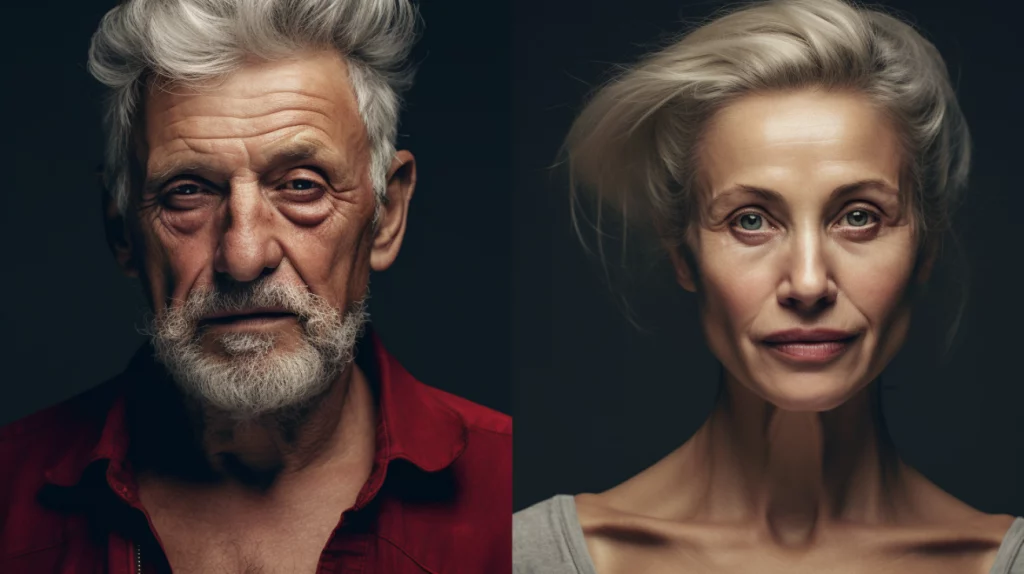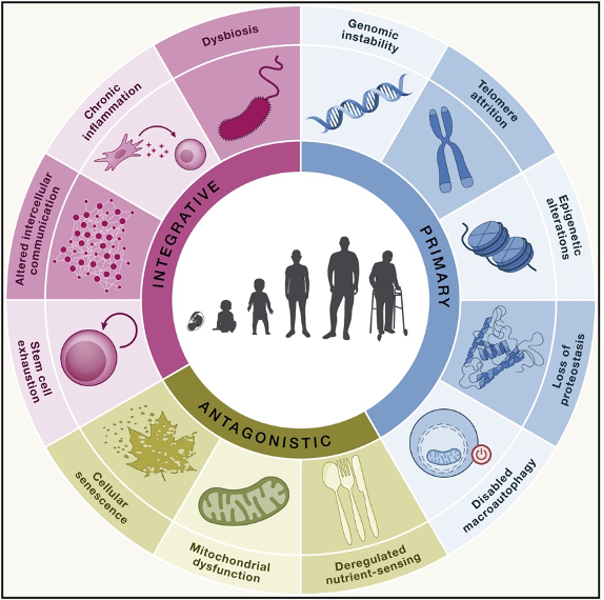Key Points:
- Levine answers everything from “Why are hangovers getting worse as we age?” to “Why do we age?”
- She shares polarizing viewpoints, saying our current definition of disease is wrong.
- She believes “The American diet is sh**.”
Morgan Levine, Ph.D., is a former Yale professor who is currently the senior research scientist at Altos Labs in San Diego, California.
“Our mission is to restore cell health and resilience through cell rejuvenation to reverse disease, injury and the disabilities that can occur throughout life.” — Altos Labs mission statement
In a video from Wired, Levine answers questions related to the science of aging from what is now called X. Her answers to the most relevant and interesting questions are paraphrased here.
Why are hangovers getting worse as we age?
“There is no evidence that hangovers get worse necessarily as we age, and you might just be forgetting how bad they were when you were younger.”
Why do we age? Why do we grow old and die? And how does the world really work?
All the molecules and cells in our body must maintain a particular pattern to support life. Without this exact pattern, there is no life. Over time, slight shifts from this pattern accumulate and manifest in aging.
How much of aging is genetic? Is longevity heritable?
“Only about 10 to maybe 20% of your lifespan is dictated by your genes. And this is good news ’cause it actually means we have a lot more control over how fast we’re aging.”
Can the aging process stop?
Maybe. There is evidence showing that aging can be slowed or even reversed, especially in cells.
However, “to take an entire person [and] stop the aging process altogether and hold them frozen at that age forever, I think is probably a little farfetched.”
Tell me then without saying anything misogynistic, how do men and women age differently?

“Even though we might not be doing quite as well in terms of the pay gap, we’re actually doing better than men in terms of the longevity gap.”
Women tend to live longer than men, and of the people who live a hundred years or longer — centenarians, 83% are women. Unfortunately, women are at higher risk for diseases like Alzheimer’s and osteoporosis.
I’ve been plant-based for a minute, but last week, I ate meat and I feel my absolute best right now, like how and why? What is the secret to longevity?
“Actually, longevity science says a plant-based diet is probably the best diet… a diet rich in mostly plant-based foods can actually extend your lifespan and prevent disease.”
What are the barriers to figuring out biomarkers or hallmarks of aging? Is it that no one else has focused in on it too much or lack of funding and people believing in it?
“I work really hard on it, so I don’t think this is just for lack of effort, but this is actually a really complex, difficult thing to figure out.”
Not only is it difficult to measure biomarkers or hallmarks of aging, but we also have to take into account millions or billions of data points, which requires a lot of computer science and machine learning.
Is healthspan like lifespan?
Lifespan is how long we live; healthspan is the length of time we live in good health, which could prolong how long we live.
“They are actually two different things, and healthspan is more the part we care about. We don’t all want to just have more and more years in a kind of more debilitated disease state, we wanna have more healthy years, so this is the part that aging research is trying to target.”
Have there been some definitive debunking and or validation of ‘blue zones’? Do centenarians in fact cluster there or no?

Blue zones are places in the world where people tend to live at least to the age of a hundred.
“There have not been debunking of blue zones, statistics don’t lie.”
However, the reason why these people live long is still debatable.
Does the aging process just go to warp speed as we approach 40?
Yes, aging seems to increase exponentially later in life, but the underlying biological causes of aging happen much earlier in life. It just takes time before we see these root causes manifest, so they seem to appear suddenly.
Is aging a disease?
The current definition of disease is inadequate and it should be viewed as a continuous process.
“I would argue that most chronic diseases are just manifestations of aging.”
Is 45, the new 35? When it comes to pregnancy, how safe is it to have a baby later in life?
“People alive today basically look like people from the past who are only two and a half years younger, so we’re looking better, but maybe not a whole decade better.”
Whether it is safe to have a baby later in life depends on the individual. We all age at different rates.
“The oldest woman to ever give birth, I believe was just shy of 66 years old.”
Cellular hallmarks of aging, what are the most predictive determinants of aging, the biochemical properties of cells or biophysical ones?
“I would argue that actually the hallmark that I study, epigenetic [alterations] is probably the most predictive as of right now.”
Considering that epigenetic alterations are biochemical modifications that change the biophysical structure of DNA, we can’t separate the biochemical from the biophysical.
Are you aware of any studies on epigenetics and its impact on longevity, and if so, what impacts have been seen?
“Yes, I’m aware of these, these are actually what my lab focuses on…”
While all of our cells essentially have the same DNA sequence, it’s the epigenetic alterations that determine their identity (e.g. a brain vs a skin cell). Interestingly, epigenetic states are what make young cells different from old cells.
We can actually infer how quickly someone is aging using epigenetics, which can predict whether someone will die in the next 10 or 20 years, or whether they will develop chronic diseases of aging.
Are there any anti-aging remedies for hands?
“Probably not, I would recommend sunscreen.”
What is senescence?
Senescence is another term for aging, but recently scientists have begun studying something called cellular senescence. That is, when cells undergo stress or have reached the end of their lifespan, they transition to what are called senescent cells. Senescent cells no longer divide and can’t be killed by cell suicide (apoptosis).
The problem is that senescent cells accumulate in our bodies with age. Moreover, they excrete pro-inflammatory factors that can damage nearby cells and cause tissue inflammation. For this reason, scientists in the aging field have been trying to target senescent cells and remove them in the hopes of reversing aging.
Is it true that calorie restriction does, while exercise does not increase lifespan in mice? If so, why? And is that interesting?
There is actually evidence showing that caloric restriction doesn’t work in all mice, and it depends on their genetic background. Some strains of mice actually have shorter lifespans in response to caloric restriction.
“In terms of exercise, I actually don’t think that there’s good evidence that exercise is not beneficial.”
While a study showed that exercised mice live slightly longer than sedentary mice, what was important is that they showed an increase in healthspan, “which ultimately to me is the more important thing.”
What are the neurological effects of excessive consumption of the modern American diet over the lifespan of an adult male? How many 60s and 70s babies are experiencing pre-diabetic irritability and accelerated brain aging due to a lifetime of eating garbage?
“The American diet is sh**, and it’s not good for the aging process, and we actually need to change our dietary habits if we want to live longer healthier lives.”
